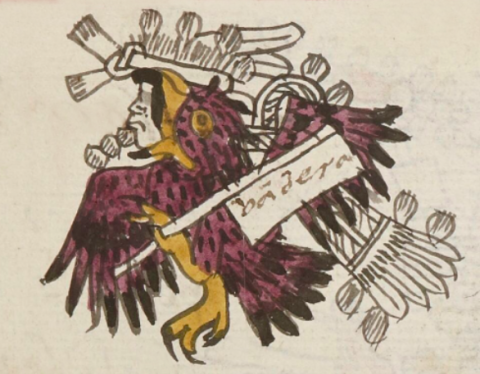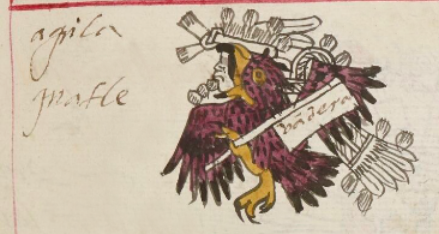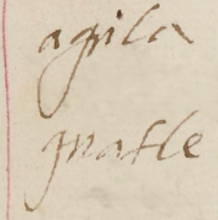cuauhtli (TR16r)
This simplex glyph for eagle (cuauhtli) shows the bird in profile, facing toward the viewer's left. Its stance is something like that of a human dancer (given the positioning of the legs to convey movement) dressed as an eagle. The dance has a face with a gray band where his eyes would be. He wears a purple-brown, feathered, eagle skin that includes the head. The bird's beak is wide open, and the human head peeks out from inside the beak. A raised claw of the bird carries a white flag (labeled bādera). The other claw hangs down. The dancer has an additional headdress with white feathers, along with additional white feathers clustered as a second tail.S
Stephanie Wood
aguila
guatle
águila / cuauhtli
Stephanie Wood
ca. 1550–1563
Jeff Haskett-Wood
eagles, águilas, feathers, banners, flags, banderas, ave, aves, pájaro, pájaros, pluma, plumas, animals, animales

cuauhtli, eagle, https://nahuatl.wired-humanities.org/content/cuauhtli
Telleriano-Remensis Codex, folio 16 recto, MS Mexicain 385, Gallica digital collection, https://gallica.bnf.fr/ark:/12148/btv1b8458267s/f57.item.zoom
The non-commercial reuse of images from the Bibliothèque nationale de France is free as long as the user is in compliance with the legislation in force and provides the citation: “Source gallica.bnf.fr / Bibliothèque nationale de France” or “Source gallica.bnf.fr / BnF.”


